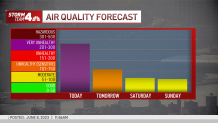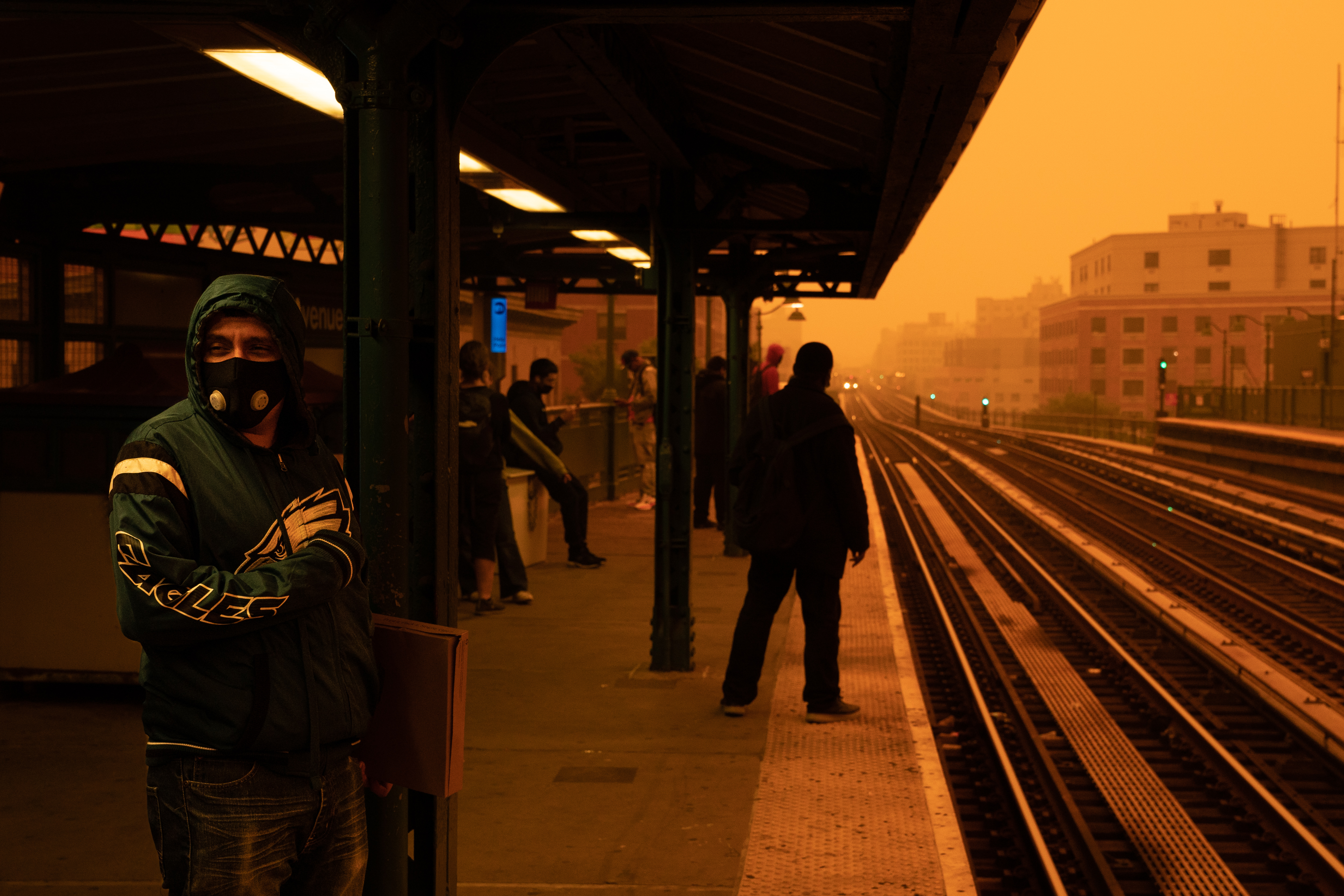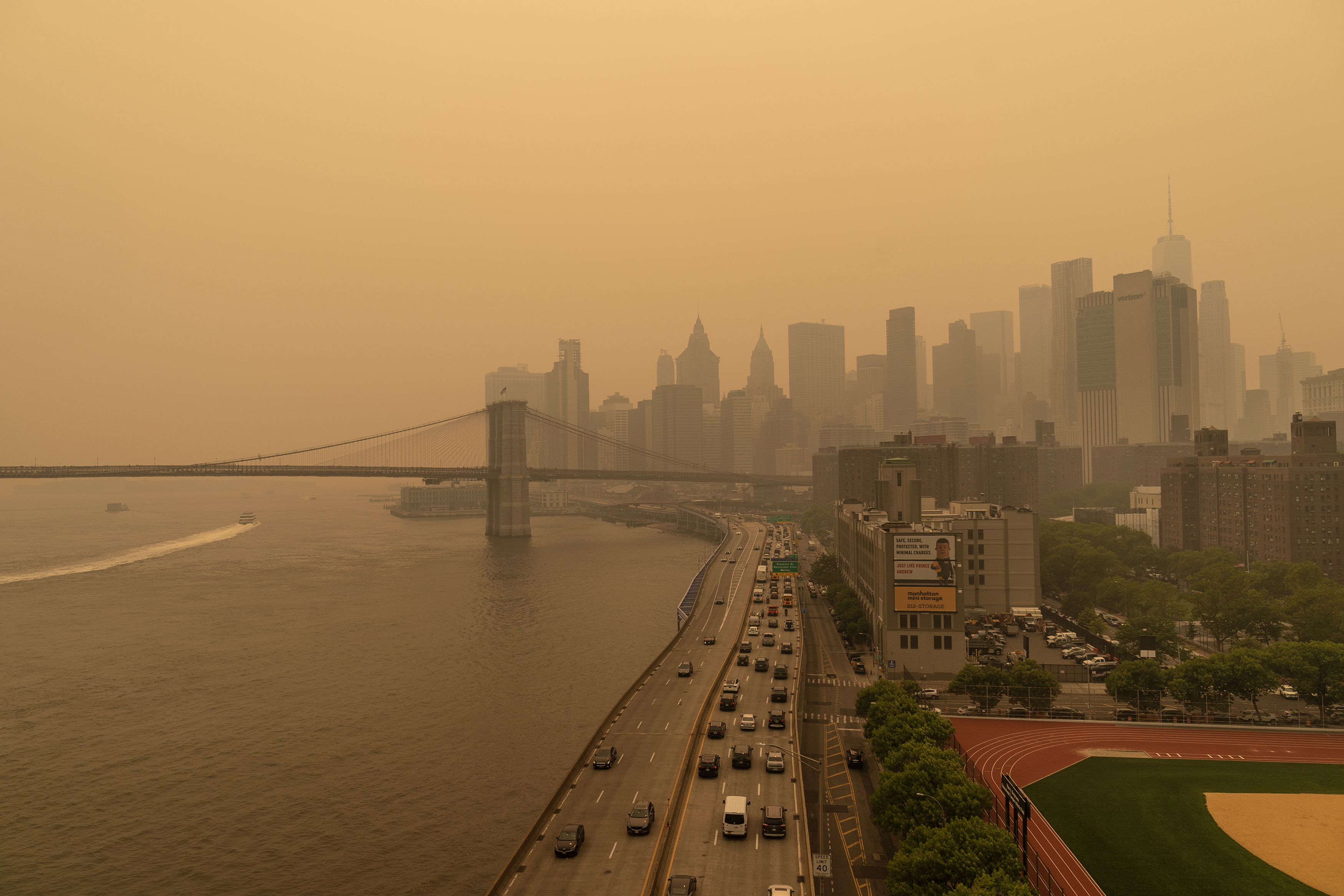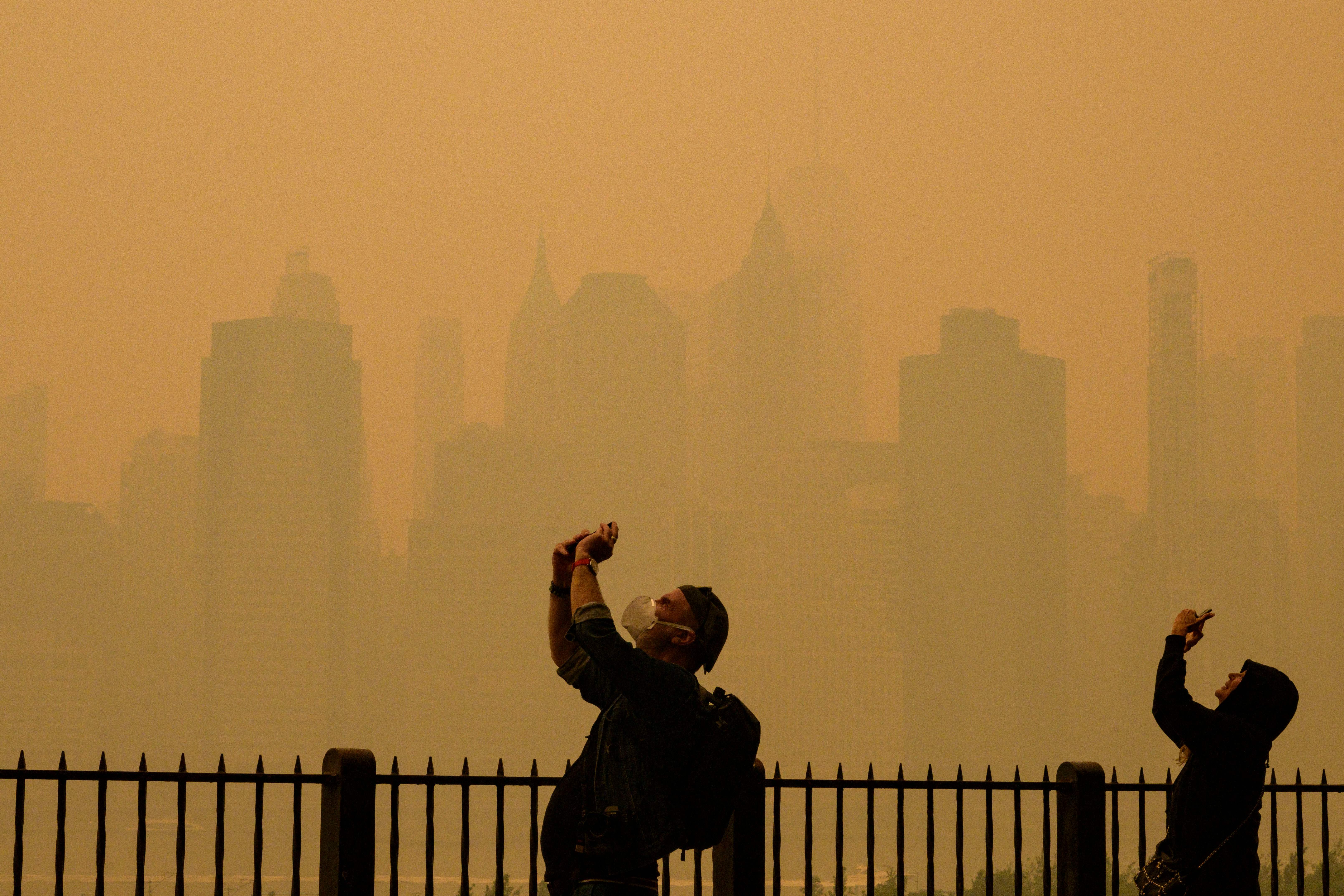Hospitals in the city say they're experiencing a higher than average number of ER visits related to asthma complications and respiratory illnesses after the sudden arrival of wildfire smoke from Canada spiked air quality to "hazardous" levels.
A day after the city's Air Quality Index (AQI) stayed in the "hazardous" level for hours throughout the afternoon and evening, Thursday morning started out in the "very unhealthy" territory, with an AQI level of 222 as of 8 a.m., according to U.S. government online platform AirNow, an air quality data site used by the Environmental Protection Agency and more.
The fine particles in the air are among the most harmful, according to the city's site. To give an idea of just how bad the air is out there, NYC on average sits at 35 micrograms of fine particles per cubic meter of air every day. That number skyrocketed to nearly 900 Wednesday afternoon, which spells trouble not only for those with breathing issues, but also anyone who is otherwise healthy.
Health officials in the city say a slight increase in emergency department arrivals began Wednesday, as the skies became an unrecognizable and ominous orange.
Get Tri-state area news and weather forecasts to your inbox. Sign up for NBC New York newsletters.
“There was a mild increase of respiratory illness in Northwell emergency departments since yesterday. At our city sites, the rise was more significant. At Lenox Health Greenwich Village, for example, the number of asthma treatments were more than double the average," a Northwell spokesperson told News 4.
New York City ranked top of the list of the world's major cities with the poorest air quality on Tuesday and Wednesday according to IQAir. Time will tell if it makes it three days in a row.

The New York State Department of Environmental Conservation extended its citywide air quality health advisory through midnight Thursday, and those who have underlying health conditions have been advised to avoid outdoor activity as much as possible.
NYC Health + Hospitals recommends people take the following precautions to protect themselves against poor air quality:
- Limit outdoor activity as much as possible, especially people with heart or breathing problems, older adults, and children.
- Keep windows closed and minimize use of window air conditioning to avoid introducing poor air quality indoors.
- Wear a high-quality KN95 mask if you need to go outdoors.
With the air quality being so dismal, who is most at risk healthwise when it comes to wildfire smoke?
According to the Center for Disease Control and Prevention, wildfire smoke is a mix of gases and fine particles from burning trees and plants, buildings, and other material.
The health effects of wildfire smoke are far and wide, according to the Environmental Protection Agency. They can range from eye and respiratory irritation to more serious conditions, including reduced lung function. Exposure can also exacerbate asthma, Chronic Obstructive Pulmonary Disease, and heart failure, prompting premature death, according to both the EPA and CDC.
The CDC notes that breathing in smoke can impact people right away and can cause:
- Coughing
- Trouble breathing
- Wheezing
- Asthma attacks
- Stinging eyes
- Scratchy throat
- Runny nose
- Irritated sinuses
- Headaches
- Tiredness
- Chest pain
- Fast heartbeat
Children, pregnant women, and the elderly are most vulnerable to smoke exposure. Responders are also most at risk, according to the CDC.
Air quality is expected to remain poor Friday as winds continue pushing smoke from out-of-control wildfires into the United States. A low-pressure front off the coast of Maine is keeping winds sweeping down from eastern Canada right into NYC, and that front isn't expected to move in the next few days — meaning smoke will continue to fill the air of the tri-state.
There could be some improvements in air quality later Thursday night, and conditions will be noticeably better into Saturday — but the smoke still won't be gone entirely.




